- Home
- Sherwood Smith
Danse De La Folie
Danse De La Folie Read online
Danse de la Folie
Sherwood Smith
Book View Café Edition
August 21, 2012
ISBN: 978-1-61138-193-1
Copyright © 2012 Sherwood Smith
www.bookviewcafe.com
ONE
It is said that the quadrille was first a military exercise performed by pairs of horsemen before the admiring court. Only later did it migrate to France in the form of a lively dance performed by two couples in squares.
The more stately quadrille that came to England was still a few years off when my story begins; imagine the opening strains playing a sprightly air in celebration of the hunting season in the first year of the new nineteenth century, deep in the county of Hampshire.
My first heroine, the Honorable Miss Clarissa Harlowe, smiled to discover with the morning post the new edition of Wordsworth’s Lyrical Poems. She looked forward to taking advantage of the last gasp of summery weather by reading in the garden, but before she could excuse herself, the butler entered the ladies’ breakfast room with a summons from his lordship for his eldest daughter.
Lord Chadwick seldom interfered in the lives of his offspring. Clarissa’s step-mother and her half-siblings looked surprised—everyone exhibited surprise except Aunt Sophia, who made a business of folding her napkin, with enough smugness in her countenance to serve as warning.
Clarissa went straight to the library, a room only used for interviews. Her father stood before the fire, a tall, fair-haired, hawk-nosed man in his favored riding clothes. Not ordinarily given to any pursuits that, as he put it, “rattled his brain,” he eyed his eldest daughter with brow-furrowed bafflement.
“Here, girl,” he greeted her, “that’s a fine gown.”
Clarissa smiled a little at the spurious compliment, and curtseyed. “Thank you, Papa. You sent for me?”
“Now, girl—Clarissa—you’re deuced—ah, very modest, which is what everyone wants in a girl, and you’ve prodigiously shining parts.”
To hear herself thus complimented for precisely those intellectual qualities she’d been scolded for by her aunt might have inspired another smile, except Clarissa now suspected she was not going to like the intent of this interview.
“Shining parts, reading, and the like,” Lord Chadwick added, with a vague wave of his riding whip toward the undisturbed books resting on the shelves around them.
He eyed his daughter’s inquiring expression, harrumphed, and took refuge in defense. “Your mother was always buried in a book. Which is why I let your grandmother the duchess pick your governesses, though monstrous interfering I found it, and as for that sour-faced French one, hey day! What a fright that woman put me in every time she poked her nose into a room. As if your step-mama couldn’t have found a better... well! What’s past is past, and I don’t mean to be criticizing her grace.”
For a moment an expression akin to fear crossed his features, as if the redoubtable dowager were listening through the keyhole, and he hastened on. “But here I thought it settled that you would make a match with the Wilburfolde boy. Good thing on all sides. Doubtless your grandmother thinks so as well, if only we knew,” he added somewhat hastily.
Ordinarily Clarissa would have been diverted. She alone of her family was very fond of her awe-inspiring grandmother, but now with her future at stake she turned the subject back, asking quietly, “Has Lord Wilburfolde called on you to that end, Papa?”
Lord Chadwick took a couple of hasty strides across the room, then turned to kick at a log in the fireplace with the tip of a glossy boot. “Yes, with his Mama. Yesterday, while you and the girls was at the vicar’s. Made his offer, with prodigious punctilio. I said I’d speak to you, and send your answer over this afternoon.”
“Did you inform him that I have stated that I have no present wish to marry, Papa?”
“I did. Lady Wilburfolde put that down to modesty. Said she likes that in a lady. Wouldn’t want anyone at The Castle who was not bien élevée, and you were the finest young lady in the parish, and there was a lot more on that order. Here, you don’t mean to refuse, do you?” At Clarissa’s nod, he frowned. “I can’t write that! Devil take it, what a monstrous position to put me in.”
“Papa,” Clarissa said softly, “when I was small you promised I should not be made to marry anyone I did not favor.”
“Aye, and so I promised all you girls.” He flung his riding whip on a side table and ran his fingers through his thinning blond locks. “But you know, you’ve got to marry someone, and out of all my pack of brats I thought you was the least headstrong and had the most sense. What’s against young Wilburfolde?”
“Nothing at all,” Clarissa said, though she was thinking of Lady Wilburfolde. But it seemed indelicate as well as impolite to refuse a gentleman because one had taken a strong dislike to his mother. “We’ve scarcely met above twice. But I was serious when I said that I do not wish to marry.”
Her father eyed her with baffled exasperation; the truth was, of all his pack of brats she caused him the least trouble. She wasn’t a Diamond like the rest, so one would have thought she’d be glad to find a leg-shackle ready to hand. “Every girl says that,” he replied. “Until she’s asked. The females are all agreed it’s a good match.”
Clarissa suppressed the urge to retort that they could marry him. She apologized, temporized, and endured the short-lived storm of her father’s temper, for she knew that it arose out of vexation, not real anger. Her Papa was too fond of his family (and too indolent) to remain angry long.
Clarissa was dismissed to resume her breakfast while Lord Chadwick went out to ride his temper into cheer again. As expected, her aunt scolded with all the fretful vehemence of the person whose cherished project has been smashed. Aunt Sophia’s tangled sentences about gratitude, expectations, and the care older and wiser heads took for heedless youth showed no sign of coming to a natural end, moving Clarissa’s pretty step-mother, who cherished peace even more than Papa, to murmur, “Clarissa, dear, did I not understand that you were agreed on this marriage?”
“Not I, Mama,” Clarissa replied firmly.
Lady Chadwick blinked, then turned to look at Aunt Sophia. “Well! Odd, how one gets these impressions... wasn’t it you, Mrs. Latchmore, who said so?”
Clarissa kept quiet. She knew that her aunt had been busy on her behalf, and while she sympathized with her aunt—no one could wish to end up an indigent widow, living on her younger brother’s charity—she was not willing to sacrifice her life so that her aunt might make herself out to be a matchmaker, a person of interest in county society.
Aunt Sophia raised her voice to the pitch of righteous anger. “What, pray, is amiss with Lord Wilburfolde, that you should be so nice in your tastes at your age?”
Clarissa was caught. She could not, especially before the wide eyes of her young half-sisters, declare that she had yet to meet a gentleman with whom she wished to share anything more intimate than a book.
“I do not wish to be married,” was all she said.
o0o
Two months later, Clarissa reflected on how she ought to have foreseen that a young lady setting herself up in opposition to her betters would cause her aunt to ring such a peal that Papa would take steps to restore order to his house.
Aunt Sophia ought to have foreseen that her brother would remove all the causes of contention.
Clarissa had always wanted to travel, but the difficulties in France had made that impossible. Papa told Clarissa that she could visit her maternal aunt while peace was talked of, and told his sister that she would be delighted to accompany her niece.
So here they were ensconced on her Papa's yacht in the middle of winter weather.
Aunt Sophia put her cup down with a clatter.
<
br /> “Clarissa!” Her voice sounded like the last, quivering gasp of a dying Christian Martyr. “My love,” she added, clasping her hands fervently to her impressive, lace-ruched bosom.
The drama of this gesture was missed by Clarissa, who was gazing out the porthole at the last of the harbor, diminishing behind them.
“Clar-issa!”
The thrilling moan on the first syllable once again evoked arenas and raging lions, but the pettish rise of issa made Clarissa think of a shed full of squabbling hens.
The older woman lay back on the cushions, assuming the look of patient suffering that she had demonstrated before her mirror when her vexatious brother insisted she must go on this horrid jaunt.
But Clarissa saw only that her aunt’s claim of faintness accorded a trifle oddly with the rich crimson of her plump cheeks. “Your pardon, Aunt?”
“Oh, Clarissa,” Aunt Sophia moaned.
“I’m sorry, Aunt Sophia. I am looking forward to traveling, and seeing a little of the world.”
“In winter, with French revolutionaries hiding in every bush? I just pray we do not end up on the guillotine!”
“I do not believe that the French would use the guillotine against English ladies.” Clarissa leaned forward earnestly. “Since peace is all but declared, this is the only opportunity to travel that has come my way, I am grateful that Papa furnished this opportunity. If you are ill, dear aunt, you could return home. I really believe that my father’s steward, my maids, and the men who sail the yacht, will see me safely across the Channel into Holland, and Aunt Beaumarchais’ hands.”
Aunt Sophia gave a loud, comprehensive sniff, which effectively expressed her disdain for this host of nominal persons. “I would be Failing in my Duty if I did not see you safely there.” The capital letters were clearly enunciated. “No, I do not wish to go, but no sacrifice is too large for my family! I was taught that a true lady always performs her duty. Just as I did when my sainted Papa made a match for me with my sainted Latchmore, though I hardly knew him—had not met him above twice, and that in company.”
Clarissa looked down at her gloved hands. “Yes, aunt.”
Snapping her fan out, Aunt Sophia flapped irritably at her purple cheeks. “Many a female at your age would feel grateful for any offer, much less one to be so highly desired.”
Clarissa said, “I would feel grateful if I was wishful to marry. But I am not.”
“So say you now. But trust me, when you are my age, or even the age of poor Miss Frease, forced to accept Sir Pericles Denby, and who is to say that he will be any better on his third marriage? She will be forced to turn a deaf eye to his... his tendencies toward unmarital felicity. There is nothing humorous in this.”
Clarissa tried to smother her guilty laughter. “I beg your pardon, aunt. I agree about Sir Pericles, it was just Miss Frease’s unhearing eyes that—”
Aunt Sophia said impatiently, “I have always sincerely pitied Olivia Frease, though she is not biddable, and indeed has said she never wished to be married. But when the old baronet died, there she was, a burden that her brother’s wife declared they would do well without. So there she was.”
There she was without the means to set up her own establishment, Clarissa thought. But it would be indelicate to remind her aunt that this was not her own case; it was so very not the case that Aunt Sophia was sure to be vexed.
Aunt Sophia was already vexed. “You are nearly five-and-twenty, and you do not have the looks of your sweet sisters. It was no mistake that Hetty went off in her first year last spring, and it shall be the same for Amelia this year. And when you stand by her, even the immensity of your dowry, which I always told your Papa would only cause you to set yourself up unbecomingly, and it is just as I foretold…” Aunt Sophia paused, trying in vain to recover the thread of her discourse. “Well,” she finished with a twitch of her shoulders. “I have done with you. I believe I’d be better employed trying to compose myself a little before we are sunk, or attacked by howling Thermidorians.”
“Then I shall remove myself, and permit you to rest in comfort.”
Clarissa smiled gently on her fuming aunt, and slipped out. Her maids were sorry to observe the familiar faint line between their mistress’s brows, but when Clarissa turned their way, it was with her ready smile.
“Mr. Bede says we’ll sail at once, Miss,” Rosina said. “Becky has your wrap right here, should you be wishful to take a turn in the air.” Rosina indicated the deck.
Clarissa smiled gratefully. “That is exactly what I was about to do, and I didn’t think of a wrap. Thank you.”
In comparison to her four half-sisters’ beauty, no one but her fondest relatives could find anything to compliment outside of her classic nose and forehead, and her elegant posture. Her eyes were well spaced, but not cornflower blue, and as for her hair, her grandmother had stated firmly that tresses a quiet shade of chestnut were not as showy as her sisters’ guinea-colored curls, one of many hints that her grace did not find Lord Chadwick’s second wife as well-bred as his first.
Clarissa, very aware that her step-mother’s pedigree was perfectly respectable, had grown up regarding these matters with a sense of humor. How else could one regard such absurdities? It was either that or descend into a fretful and futile temper against the vagaries of fate, as demonstrated (for instance) by her aunt.
It was also true that Clarissa took little interest in her own appearance—there were days when she did not glance in the mirror once from the moment she woke up until she was ready for bed.
It galled Rosina, once her mother’s maid and now hers, that to keep the peace Clarissa permitted her aunt to have the ordering of her clothes. The dresses that Aunt Sophia chose were meant to make Clarissa look as young as her sisters, but the whites and little furbelows that looked well on the younger girls turned Clarissa sallow, and aged her unmercifully.
When Clarissa peered into the mirror and noticed how limp were the short side-curls dangling next to her long face, she sighed and went out.
Her heart full, Rosina muttered to Becky, the young lady’s maid in training, “It breaks my heart, it does, to see her head dressed so ill-suited.”
Becky agreed. Dressing mutton for lamb just makes the ewe look the older next or nigh a real lamb, Becky’s mother had stated bluntly, as she gave the butter churn a hard wring.
“At least this blue kerseymere looks well, and not a word could the old tabby gainsay, when the lengths were sent by her grace the Duchess-grandma herself,” Rosina said with satisfaction to Becky, who—the perfect assistant—always agreed with her senior.
o0o
Clarissa stood on the deck, watching the last of Folkestone Harbour vanish. She loved the swell and sinking of the billows, the salty bite of brine, the ever-changing patterns of the sea in motion. So this was why men left their warm homes for the sea! She turned around once, looking up in admiration at the complication of ropes and spars and curving sails. How glorious!
Mr. Bede, Lord Chadwick’s steward, saw her looking about, and recognized in his lord’s quiet daughter one who had fallen instantly in love with the sea. No stranger to this spectacle (Mr. Bede’s brother had run away from a print shop at fourteen, and was even now a master aboard a tea wagon on the far side of the world), he pointed out several sights to her and chatted genially about travels he’d made before the French ruined such jaunts, until the weather turned foul. He then adjured her to go below.
Clarissa found her aunt in a stertorous sleep. Grateful for the respite, she cast aside her bonnet and muff, and picked up the new edition of Wordsworth’s Lyrical Ballads. She read and dreamed over the poetry until the light began to fade. How I wish it were possible for a lady to own and sail a ship, she thought wistfully.
The sun was setting, and wisps of fog were drifting across the dark grey water, bringing the enclosing gloom of gray sky meeting grey sea even closer. The prospect of two months of travel cheered her immensely, in spite of the fact that Aunt Beaumarchais’ h
eld an old-fashioned respect for fathers ordaining suitable marriages for their daughters.
But as the fog thickened and the sun set somewhere behind them, she tucked herself up more firmly, finally nodding off over the book.
She woke abruptly when she heard a loud cry from somewhere above.
“HO! LIGHTS AHEAD, LIGHTS—”
The shouter was interrupted as the yacht lurched, viciously. There was a terrible sound of splintering wood and groaning metal. Aunt Sophia rolled into a wall and woke screaming. Clarissa, trying to stand, was entangled in blankets and shawls and lost her balance. As the ship rolled, she pitched forward toward the door, hit her head on the jamb, and slid into darkness.
TWO
She woke to the scent of strong cologne, which made her head throb. Opening her eyes, she looked up into a stranger’s face.
“Just lie still,” the stranger whispered. “You’ve had a knock on the head.”
Clarissa’s gaze traveled over the face, noticing in a detached way that its features were beautiful. Large hazel eyes reflected a wavering light with a kindly expression. Long fringed dark lashes framed these eyes, with winged dark brows above, and below, a fine nose and a mouth beautifully curved. These features graced a heart-shaped face that came to a smallish but well-defined chin, determinedly set. Yes, it was a beautiful face.
Clarissa then noticed that tendrils of black hair were escaping from a battered cap, and that a worn and outmoded great-coat covered the rest of her rescuer. He was a boy, no, a young gentleman. His small hands, as he gently wiped Clarissa’s brow with the damp handkerchief, were smooth and light in their touch.
“No doubt you have sisters,” Clarissa said in a faint but conversational voice.
Instant laughter quirked the hazel eyes. “If you wish,” the soft voice soothed.
Clarissa glanced beyond the boy to a lantern set on a shelf. This was not a familiar cabin.
Her host said, “The fog was very thick, and your yacht ran into our cutter. No one was hurt, though your yacht was sadly damaged. We brought everyone aboard, and as the weather is getting worse, we will take you to Tarval Hall.”

 Inda
Inda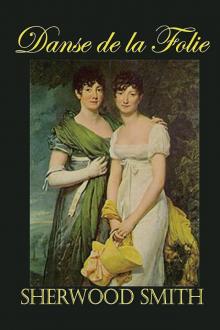 Danse De La Folie
Danse De La Folie King's Shield
King's Shield Whispered Magics
Whispered Magics Fleeing Peace
Fleeing Peace Barefoot Pirate
Barefoot Pirate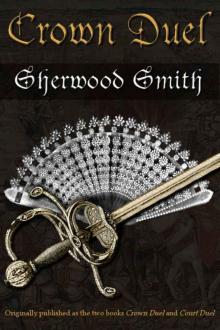 Crown Duel
Crown Duel Mearsies Heili Bounces Back
Mearsies Heili Bounces Back Commando Bats
Commando Bats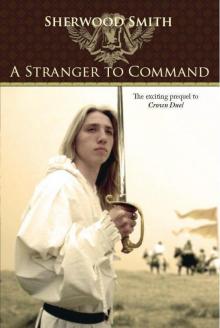 A Stranger to Command
A Stranger to Command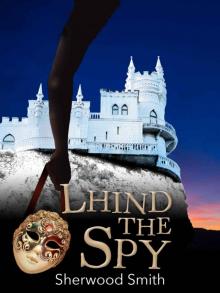 Lhind the Spy
Lhind the Spy The Spy Princess
The Spy Princess Blood Spirits
Blood Spirits Sasharia en Garde
Sasharia en Garde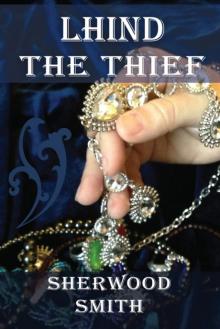 Lhind the Thief
Lhind the Thief Paradise Drift
Paradise Drift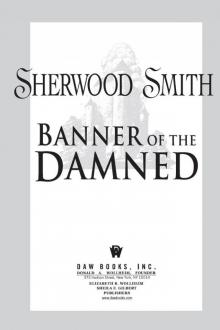 Banner of the Damned
Banner of the Damned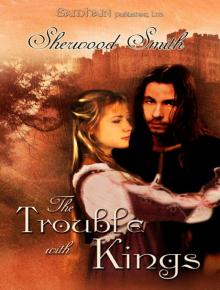 The Trouble With Kings
The Trouble With Kings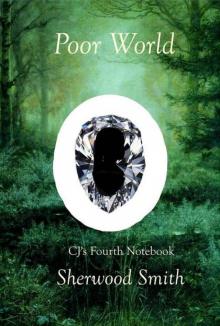 Poor World
Poor World Treason's Shore
Treason's Shore Wren Journeymage
Wren Journeymage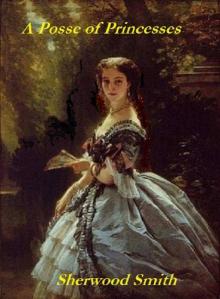 A Posse of Princesses
A Posse of Princesses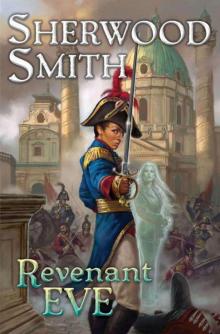 Revenant Eve
Revenant Eve Once a Princess
Once a Princess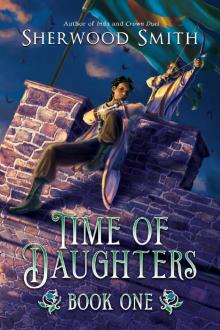 Time of Daughters I
Time of Daughters I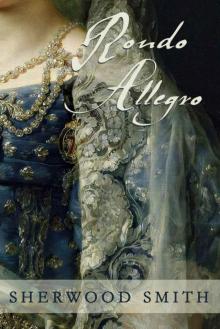 Rondo Allegro
Rondo Allegro Coronets and Steel
Coronets and Steel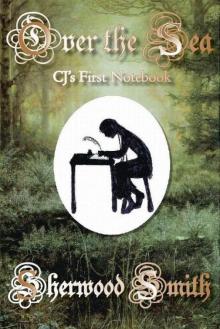 Over the Sea
Over the Sea Senrid
Senrid Hunt Across Worlds
Hunt Across Worlds A Sword Named Truth
A Sword Named Truth The Fox
The Fox Twice a Prince
Twice a Prince Fair Winds and Homeward Sail: Sophy Croft's Story
Fair Winds and Homeward Sail: Sophy Croft's Story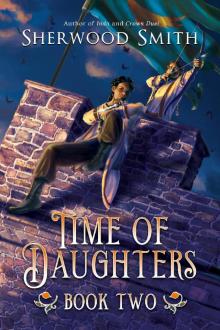 Time of Daughters II
Time of Daughters II The Rifter's Covenant
The Rifter's Covenant The Phoenix in Flight
The Phoenix in Flight Stranger
Stranger The Thrones of Kronos
The Thrones of Kronos A Prison Unsought
A Prison Unsought Twice a Prince: Sasharia En Garde Book 2
Twice a Prince: Sasharia En Garde Book 2